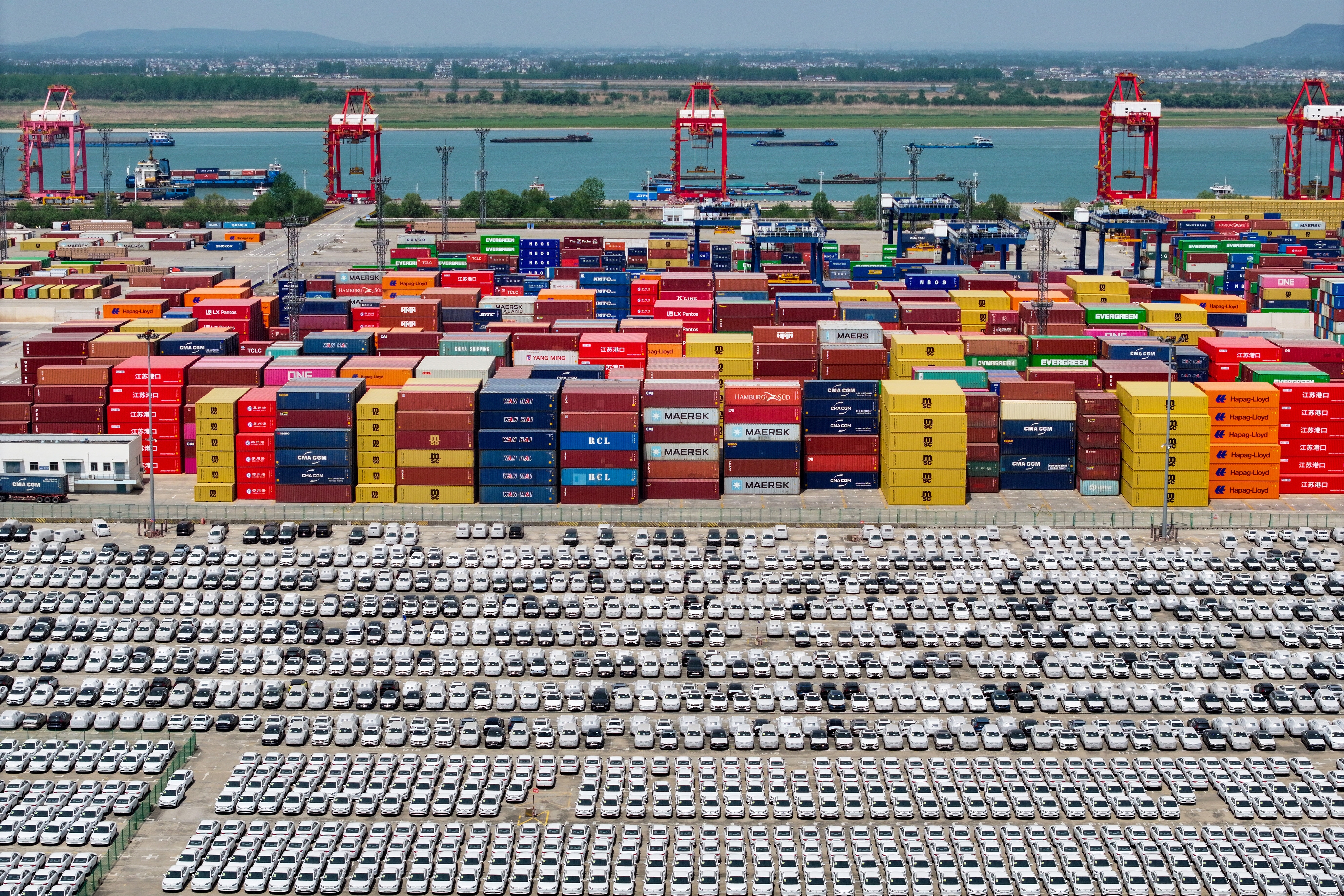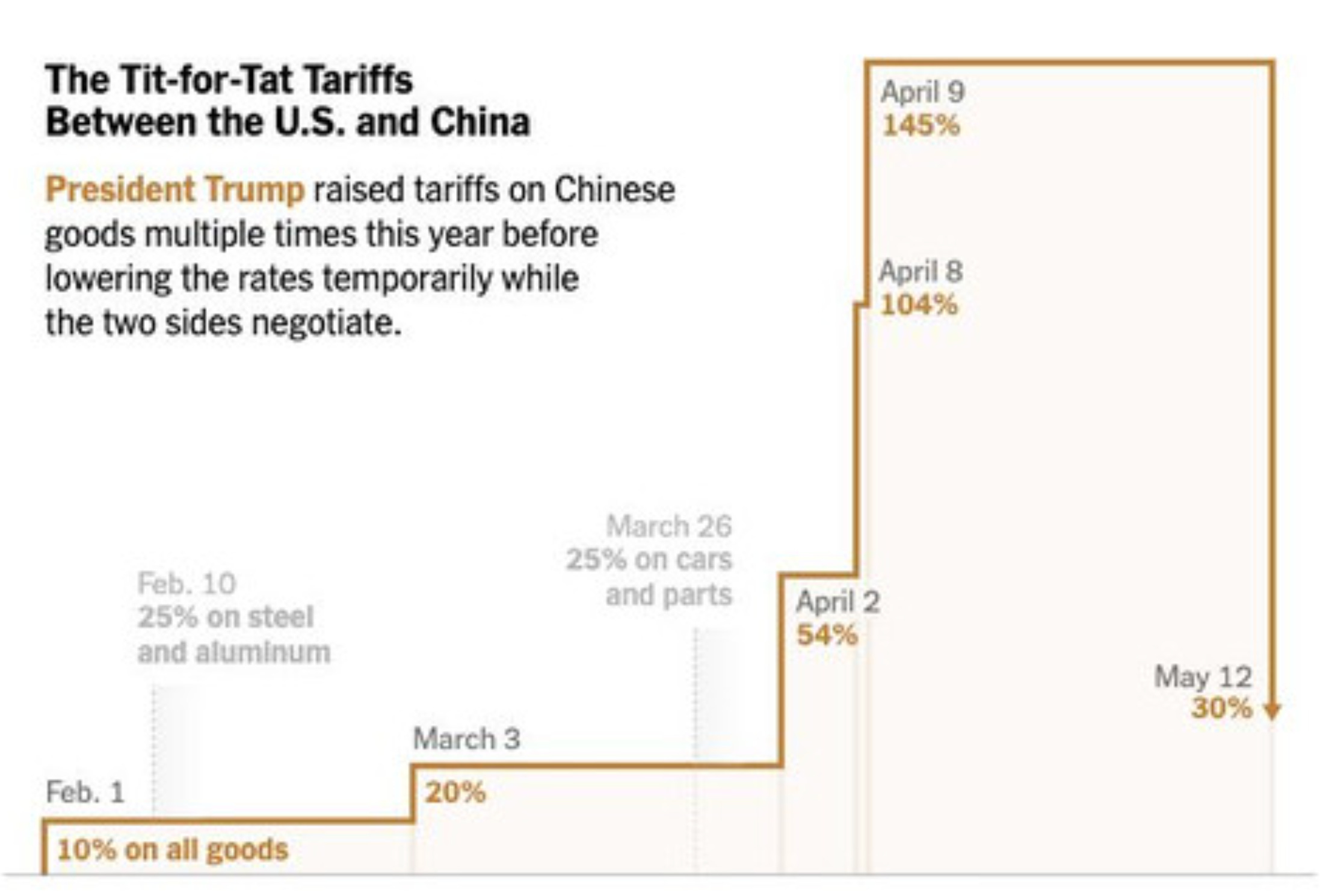
2801. Why an economist says temporary U.S.-China tariff deal doesn't ease uncertainty
Obed Manuel discusses how a temporary U.S.-China tariff deal fails to alleviate uncertainty and may lead to higher prices for businesses importing Chinese goods.
your daily dose of economic commentary

Obed Manuel discusses how a temporary U.S.-China tariff deal fails to alleviate uncertainty and may lead to higher prices for businesses importing Chinese goods.

An argument that American manufacturers face challenges in filling existing manufacturing jobs despite efforts from political leaders to revive the sector.

Business owners express relief over temporary tariff cuts with China, but uncertainty looms regarding future trade relations and economic impacts.

Darian Woods discusses NPR's funding sources and the implications of President Trump's executive order to cut federal support.

The post discusses the negative impact of increased tariffs on UK-US trade under the Trump administration, highlighting the permanence of higher tariffs compared to previous rates.

Menzie Chinn discusses the evolving nature of international economics and its implications for educational approaches in the field.

Timothy Taylor discusses President Trump's drug pricing policy and its economic implications, referencing recent academic papers on pharmaceutical pricing and innovation.

Stephen Fowler discusses Trump's attempt to dismiss Corporation for Public Broadcasting board members and the subsequent involvement of DOGE staffers.

Tyler Watts discusses job growth in the U.S., arguing that new service sector jobs often pay better than lost manufacturing jobs, countering common economic misconceptions.

An argument that job growth in the U.S. has outpaced population growth, with many new jobs offering better wages than lost manufacturing positions, challenging common misconceptions about employment trends.

An argument that job growth in the U.S. has outpaced population growth, with many new jobs paying better than lost manufacturing positions, challenging common misconceptions about employment trends.

The post examines the challenges and potential strategies for Democrats to win the Senate in 2026, highlighting key races and the impact of candidate quality.

The post discusses the April 2025 SLOOS survey findings, highlighting weaker demand for residential real estate loans and tighter lending standards by banks.

Paul Krugman discusses Trump's recent tariff cuts on China, analyzing their implications for trade policy and economic uncertainty.

Jadrian Wooten explores the complexities of the papal election process, emphasizing the economic implications of voting rules and decision-making trade-offs.

The post discusses the positive market reaction following the U.S. and China’s agreement to temporarily reduce tariffs.

Bill McBride discusses the increase in active single-family housing inventory, highlighting significant year-over-year growth and comparisons to previous years.

Noah Smith discusses the decline of capitalism, highlighting political and economic challenges, including tariffs, the legacy of Warren Buffett, and broader market trends.
Brittney Melton discusses the U.S. and China reducing tariffs and anticipates commerce and cultural exchanges during Trump's Middle East trip.

The post discusses potential changes to student loan repayment options, highlighting a Republican proposal that limits borrowers to two repayment plans.